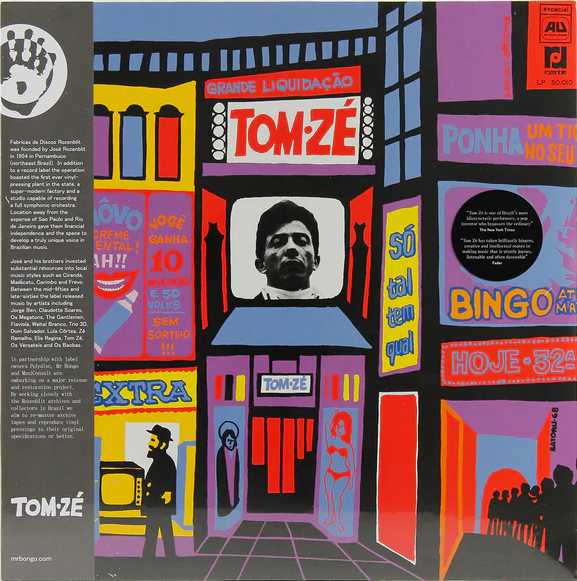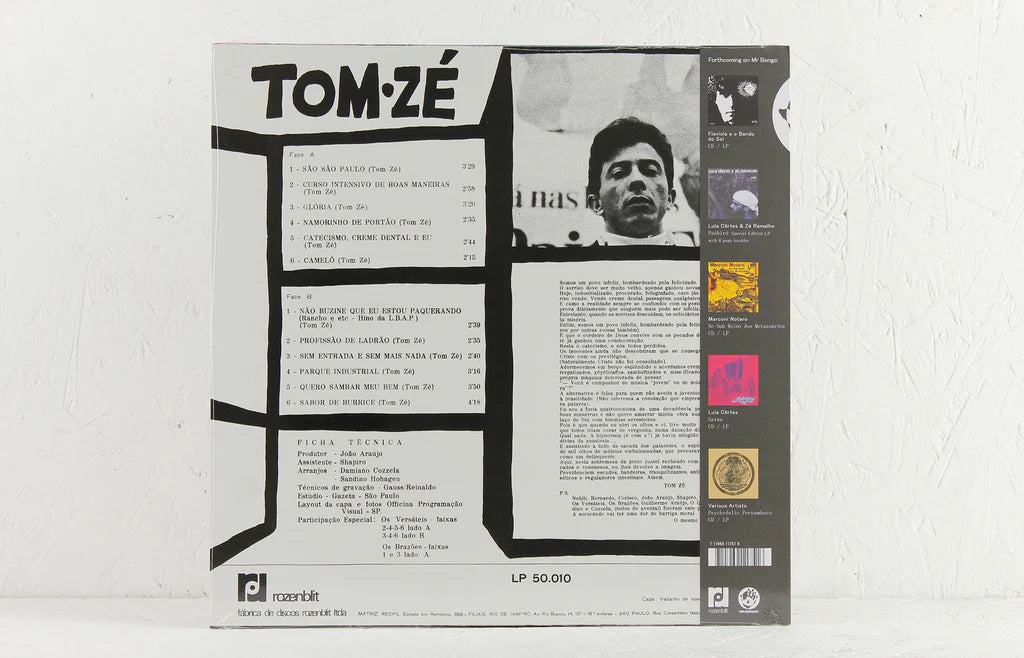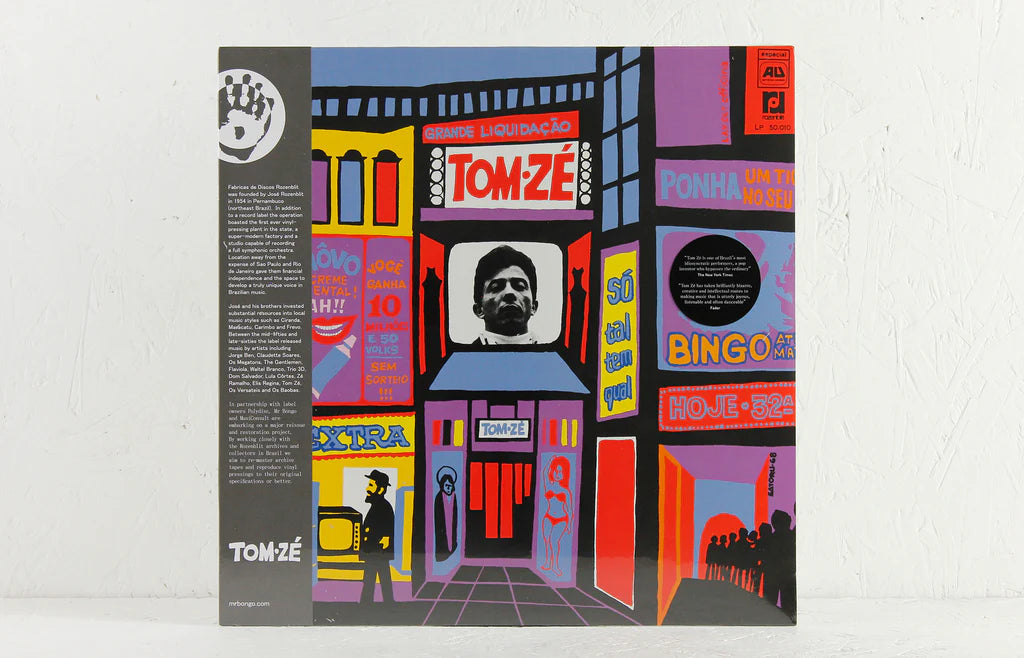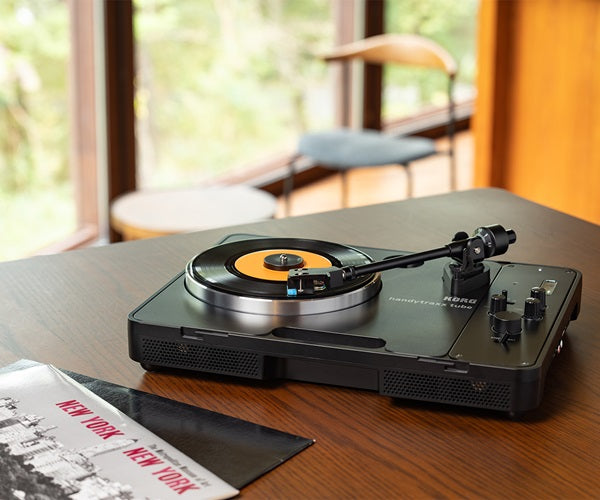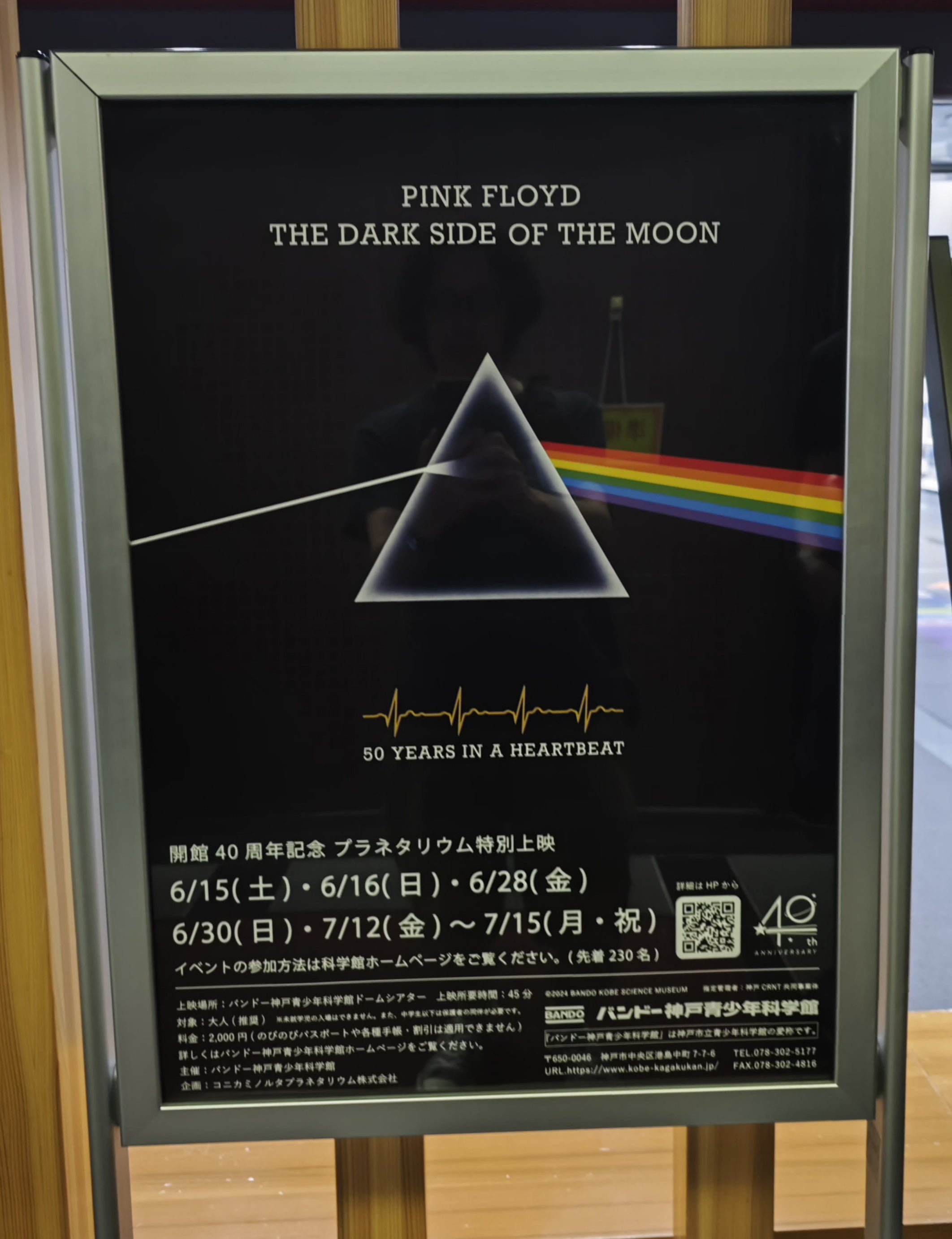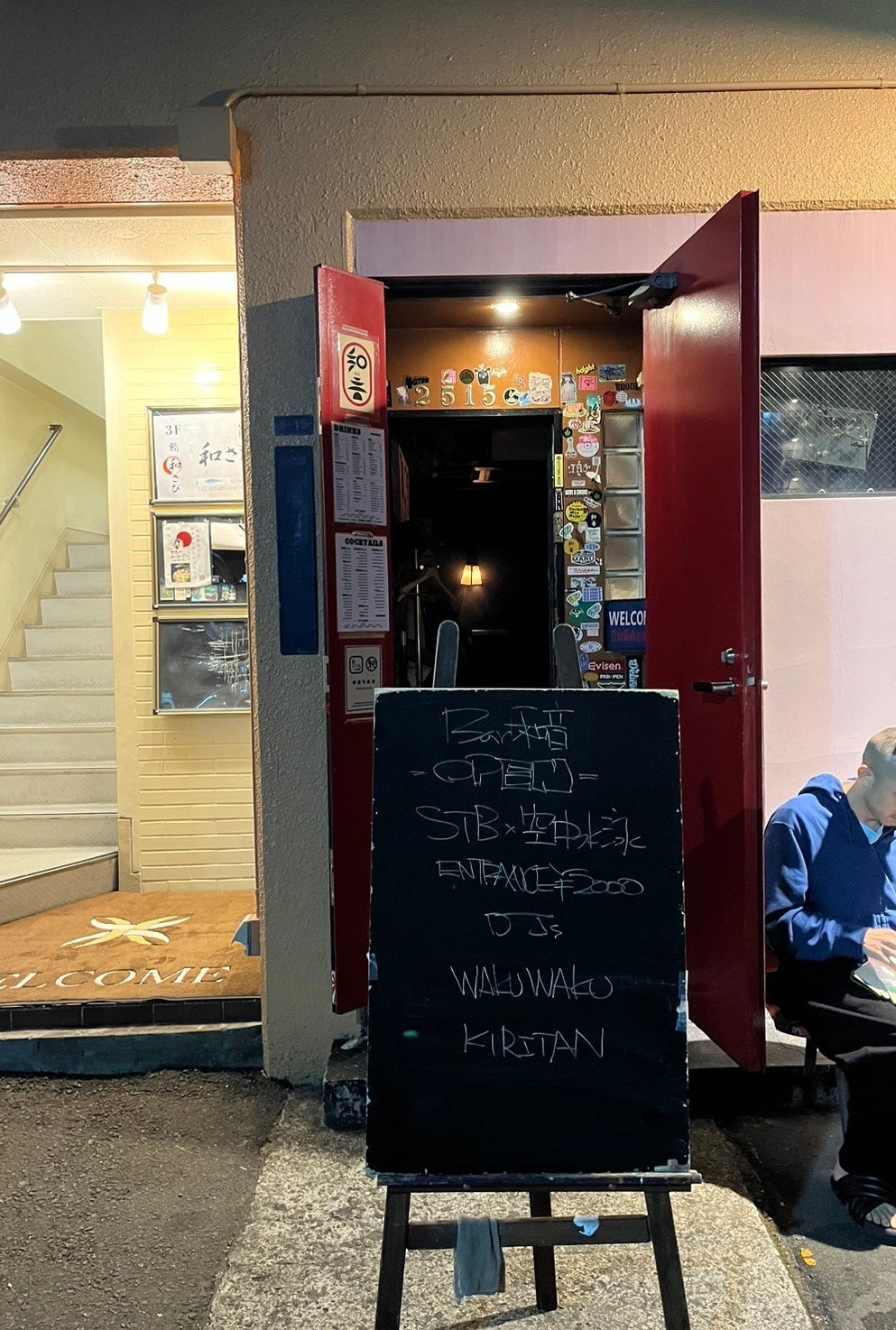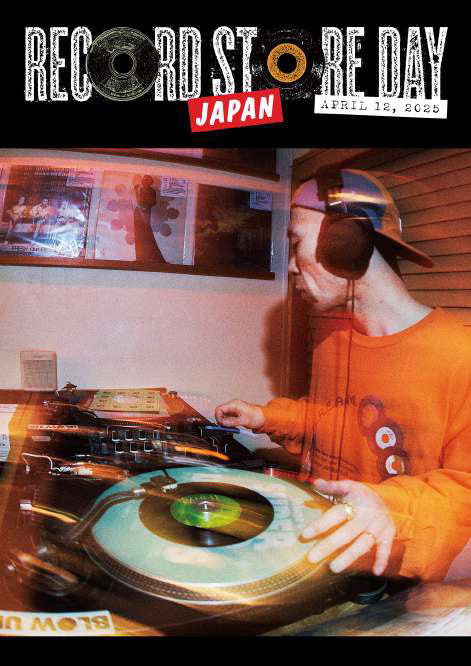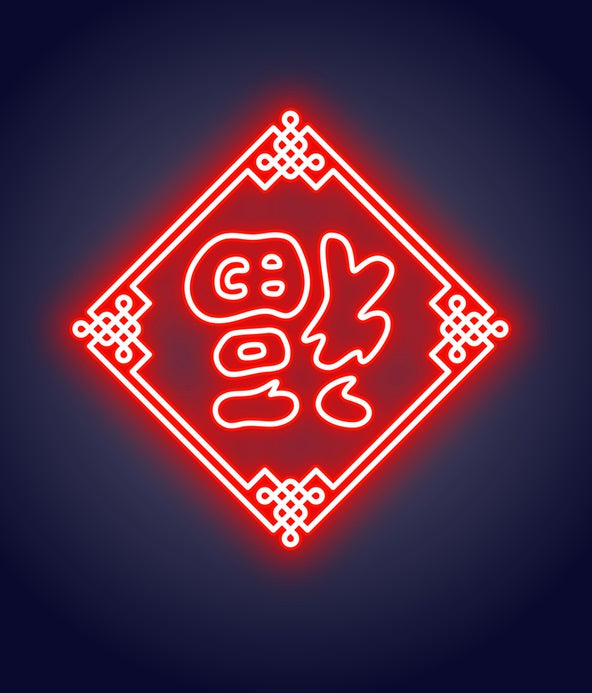説明
Rozenblitのカタログから、Tom Zéの最高のアルバムが限定LPとCDで再リリース。1968年、Tom Zéは友人のGilberto GilやCaetano Velosoと共にサンパウロで活動。『Grande Liquidacao』は、Os BrazoesとOs Versateisという2つのサイケデリックロックバンドをバックにしたハイパーアクティブなポップアルバム。異なるジャンルをサンプリングし、独特なボーカルメロディを展開。特に「Gloria」は印象的。また、「Parque Industrial」も収録。Tom Zéはサンプラーのクリエーターとしても知られ、David Byrneによって世界的に注目を浴びました。
A1 São São Paulo 3:29
A2 Curso Intensivo De Boas Maneiras 2:58
A3 Glória 3:20
A4 Namorinho De Portão 2:35
A5 Catecismo, Creme Dental E Eu 2:44
A6 Camelô 2:15
B1 Não Buzine Que Eu Estou Paquerando (Rancho E Etc - Hino Da L.B.A.P.) 2:39
B2 Profissão De Ladrão 2:35
B3 Sem Entrada E Sem Mais Nada 2:40
B4 Parque Industrial 3:16
B5 Quero Sambar Meu Bem 3:50
B6 Sabor De Burrice 4:18
His first, and arguably best album from the great Rozenblit catalogue lovingly restored in its original format on limited LP and CD, re-mastered from the original Rozenblit master tapes.
In 1968 Tom Zé; moved from Salvador Bahia to Sao Paulo where he hung out and wrote with his friends Gilberto Gil and Caetano Veloso. Although initially part of theTropicalia movement, Zé was so independent he was determined to forge his own musical path. He started by recording Grande Liquidacao, a hyperactive pop album backed up by two incredible psychedelic rockbands: Os Brazoes and Os Versateis.
Tom Zé's material on this album includes traditional Brazilian Tropicalia laced with crazy vocal melodies and samples a multitude of genres from funk to psychedelic rock and bossa nova creating in the process a sort of unheard pop exotica. This is especially apparent on the track “Gloria” with its changing tempos, bubbling instrumentation and off-the-wall harmonies. The pace of the album, considering it was the 60’s, is brutal so Zé takes a break between songs to address the listener before resuming his zigzag trajectory. The album also includes the fantastic “Parque Industrial” which was later recorded by Gal Costa, Gilberto Gil and Caetano Veloso on the Tropicalia: Panis et Circenses album.
Tom Zé was also arguably the creator of the first sampler. In the mid 1980's David Byrne pulled one of his albums out of the samba section of a Rio de Janeiro record store which led him to bringing Zé to worldwide attention by releasing numerous albums on the Luaka Bop label.

